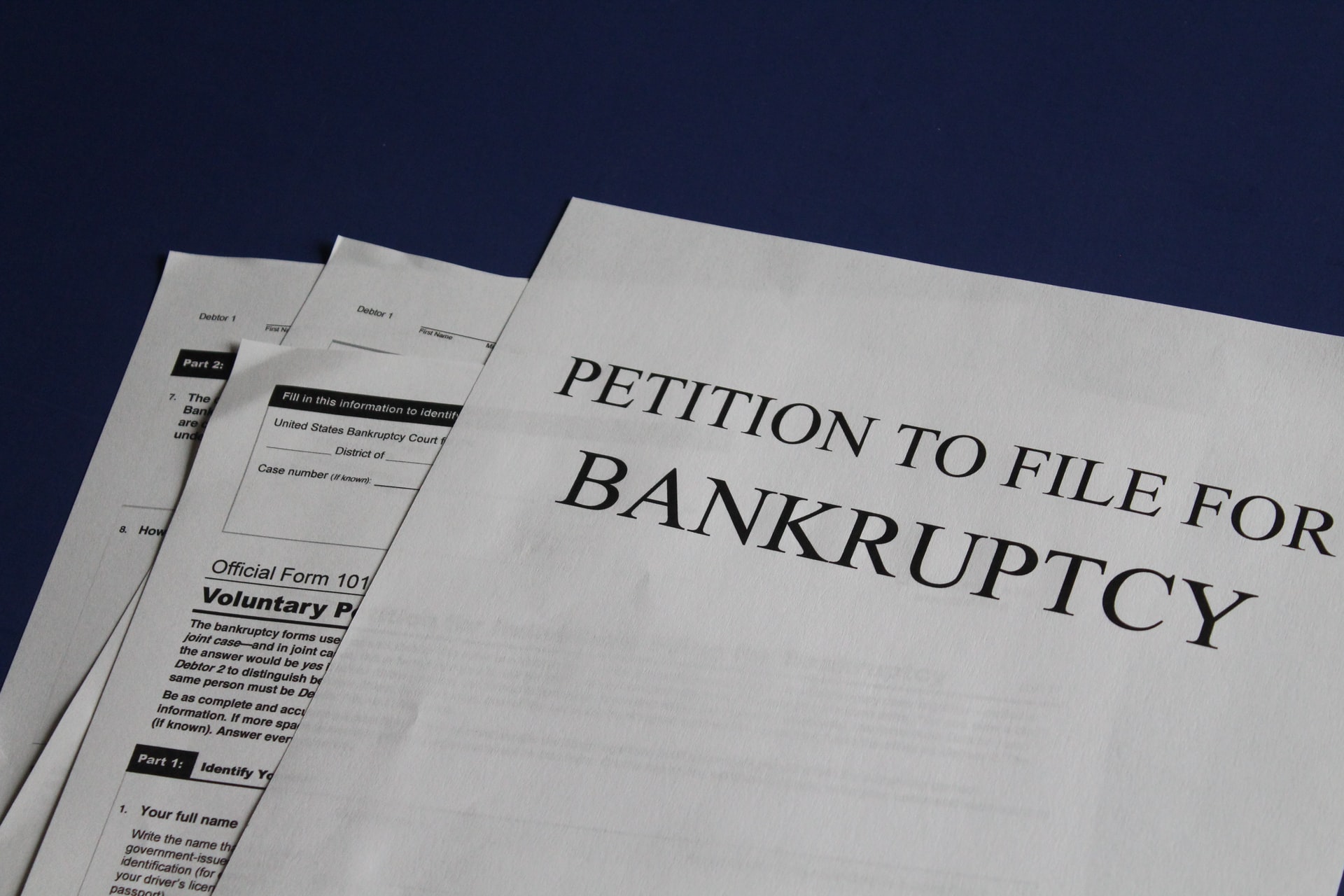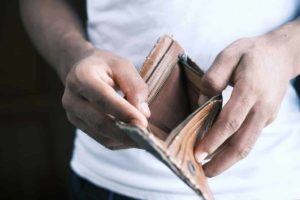Bankruptcy is probably the last resort for many people looking to get rid of debt and for a good reason. Filing for bankruptcy can free you from your debt problems and provide a fresh start with your finances. While it may give you a second chance to start over again, what happens when you file for bankruptcy? Keep reading to find out.
What Is Bankruptcy?
Bankruptcy is a legal process where individuals and companies who are unable to repay their debts seek relief. Typically, when you file for bankruptcy, a court-appointed trustee will examine your assets and liabilities to decide whether to discharge your debts or not.
A discharge is a court order prohibiting creditors from pursuing borrowers to collect a discharged debt.
The discharge occurs if the debtor meets all the bankruptcy requirements and is approved by the bankruptcy court. However, the terms vary based on the type of bankruptcy filed. There are two most common types of bankruptcy: Chapter 7 and Chapter 13 bankruptcy.
How Chapter 7 Bankruptcy Works
Chapter 7 bankruptcy, also referred to as liquidation bankruptcy, involves the sale of non-exempt assets to repay debt. With this type of bankruptcy, you’re allowed to keep exempt assets, such as your retirement accounts, house, and car. However, exempt property varies by state, so ensure that you check with your bankruptcy lawyer to find out the property you’re allowed to keep.
You must fall below the state’s median income to file for Chapter 7 bankruptcy. Once you’ve successfully filed, the court will discharge you of all unsecured debts. While most of your debts will be wiped out, child support payments, alimony, federal student loans, and taxes won’t be discharged, so you’re still on the hook to repay them.
Chapter 7 bankruptcy might seem like a great option for many people as it takes six to eight months to fully erase the debt, but it has downsides. For one, bankruptcy stays on your credit report for up to 10 years, which will hurt your credit score, and this may prevent you from taking out a loan or obtaining a new line of credit.
This type of bankruptcy is ideal for individuals who do not have regular income and don’t wish to file for Chapter 13 bankruptcy.
How Chapter 13 Bankruptcy Works
With a Chapter 13 bankruptcy, you don’t have to lose your personal property to repay your debts. Instead, the bankruptcy court reorganizes your debts so that you can pay a portion of them in a three to five-year repayment plan. That’s why it’s also referred to as reorganization bankruptcy or wage earner’s plan.
Once you pay off the debts in full according to the repayment plan, the rest of your debts are forgiven. But if you don’t stick to the plan, creditors might pursue you to collect the balance owed. They might even take legal action and sue you for not repaying your debt.
Like Chapter 7 bankruptcy, Chapter 13 bankruptcy remains on your credit report for up to 10 years. This will also have a severe negative impact on your credit score, and even worse, it may be challenging to get approved for credit.
Chapter 13 bankruptcy is appropriate for anyone who doesn’t want to lose property through liquidation or does not qualify for Chapter 7 bankruptcy due to high income. In other words, this type of bankruptcy protects your property.
What Happens After You File for Bankruptcy
After you file for bankruptcy, the following things will take effect:
Step 1: Assignment of Trustee
After you file a claim, the United States Bankruptcy Court will assign you a bankruptcy trustee. The obligation of the trustee is to oversee your bankruptcy filing. For example, if you filed Chapter 7 bankruptcy, the trustee is responsible for liquidating your assets. For Chapter 13 bankruptcy, the trustee is in charge of setting up a repayment plan.
Step 2: Meeting of Creditors
The next step is attending a creditors meeting, also known as the 341 creditors meeting, called by the trustee. The purpose of the meeting is for the trustee to ask you for your total number of assets and liabilities under oath. Typically, the meeting is held between the bankruptcy trustee and the debtor, but creditors are open to attending, too.
Step 3: Automatic Stay
Once you file bankruptcy, creditors will stop pursuing you to collect debt since your case is unsettled. This is called an automatic stay, which gives you some sort of relief as you wait for your case to be finalized.
Step 4: Credit Counseling Course
You also need to take a credit counseling course that will place you in a better position to manage your finances after being discharged from your personal loans. Usually, a bankruptcy lawyer will issue you a debt discharge once you complete the course.
Step 5: Resolution
Based on the type of bankruptcy you filed, the trustee will take the following measures:
- Property Liquidation (Chapter 7): If you filed Chapter 7 bankruptcy, it’s time for the trustee to liquidate your non-exempt assets to repay your debts.
- Repayment Plan (Chapter 13): On the flip side, the trustee will set up a three to five-year repayment plan for Chapter 13 bankruptcy.
Step 6: Debt Discharge
Finally, you’ll get a discharge order from the bankruptcy court. Whether you filed Chapter 7 or Chapter 13 bankruptcy, creditors will no longer pursue you in the future.
Alternatives to Bankruptcy Filing
Filing bankruptcy is not the only route out of debt. If bankruptcy doesn’t sound appealing, you may want to consider these options:
Debt Consolidation
This is taking out a loan to pay off other debts, typically high-interest debt, such as credit card debt, student loan debt, and other consumer debt. By combining more than one debt obligation into a new loan, you’re likely going to get favorable payment terms like lower monthly payments or lower interest rates.
Debt Settlement
You can also get rid of debt by paying less than what you owe through a debt settlement. Typically, you’ll want to negotiate with your creditor to reduce the amount owed and make one lump sum payment, after which your debts are reported settled.
Negotiating with creditors for a settlement offer can be challenging for many people. You may want to consider hiring a debt settlement company in such a situation. They can help you get the debt relief you’ve always wanted.
FAQs About What Happens When You File for Bankruptcy
If you declare yourself bankrupt, you’ll lose non-exempt assets that the bankruptcy trustee liquidates to repay your debt. What can be categorized as non-exempt assets may vary from state to state.
No. You won’t be discharged from all your debts when you file for bankruptcy. Generally, child support payments, alimony, federal student loans, and certain taxes will not be discharged after bankruptcy.
Bankruptcy can protect your home from foreclosure. Chapter 13 bankruptcy is designed to let you keep your home even if you fall behind on payments. With a Chapter 7 bankruptcy, you won’t lose your home, provided that you continue paying your mortgage.
Several factors go into determining what happens to your car after bankruptcy. In general, it depends on the type of bankruptcy you file, the car’s value, whether you own the vehicle outright, leasing or still financing, and the exemptions that apply within your state.
Yes, you can buy a new house or a car after bankruptcy. At the end of the day, bankruptcy is aimed at discharging from debt to give you a fresh start in your finances. However, how long you need to wait to buy a house or a car depends on whether you filed Chapter 7 or Chapter 13 bankruptcy.







